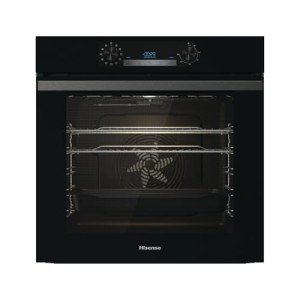20 Fun Details About Built-In Oven
페이지 정보
작성자 Kim 작성일 25-05-19 18:30 조회 3 댓글 0본문
Understanding Built-in Ovens and Hobs: The Perfect Kitchen Combination
As modern-day kitchen areas develop, built-in appliances are ending up being increasingly popular for both performance and looks. Amongst these appliances, built-in ovens and hobs stick out as necessary components for any culinary lover or home cook. This article explores the benefits, functions, and factors to consider surrounding built-in ovens and hobs. It also resolves common questions, providing a comprehensive guide to these kitchen fundamentals.

What are Built-in Ovens and Hobs?
Built-in ovens are Integrated Ovens Uk into kitchen cabinets, developing a streamlined, seamless look. They are available in numerous types, including standard, convection, and steam ovens, each dealing with various cooking techniques. Hobs, on the other hand, are the cooking surfaces that integrate with the kitchen counter top. They can be gas, electric, or induction, allowing cooks to select based upon their cooking design and energy choice.

Benefits of Built-in Ovens and Hobs
- Space-Saving: Built-in designs maximize kitchen area by eliminating the requirement for freestanding systems, producing an open and airy environment.
- Visual Appeal: Their streamlined style contributes to a modern, streamlined appearance in the kitchen.
- Enhanced Functionality: Built-in ovens typically feature advanced cooking innovation, integrated ovens uk providing a range of functions like self-cleaning and wise controls.
- Personalization: Manufacturers provide a range of finishes and styles, permitting house owners to tailor their appliances to match their kitchen design.
Kinds Of Built-in Ovens
1. Standard Ovens
Traditional ovens use convected heat from the bottom and can be perfect for baking.
2. Convection Ovens
Stove have a fan that circulates hot air, guaranteeing even cooking. They reduce cooking time and are perfect for roasting meats or veggies.
3. Steam Ovens
Steam ovens use damp heat to prepare food, protecting nutrients and flavors. They are becoming progressively popular amongst health-conscious cooks.
4. Microwave Ovens
These ovens supply fast heating and cooking and serve various functions, from reheating leftovers to baking.
Types of Hobs
1. Gas Hobs
Gas hobs use natural gas or propane for cooking. They provide instant heat control, making them a preferred amongst expert chefs.
2. Electric Hobs
Electric hobs have strong or ceramic surface areas that warm up via electric coils. They are simple to tidy however might take longer to heat than gas models.
3. Induction Hobs
Induction hobs use electro-magnetic energy to straight warm pots and pans, providing quick heating and energy efficiency. They cool off rapidly and offer a much safer cooking experience.
Elements to Consider When Choosing Built-in Ovens and Hobs
When selecting built-in ovens and hobs, numerous elements need to be thought about:
1. Space Limitations
Procedure the offered space in your kitchen to ensure that the appliances will fit flawlessly into the cabinets.
2. Cooking Style
Consider your cooking routines. If you frequently bake, a convection oven may be perfect. On the other hand, induction hobs are great for safety and efficiency.
3. Budget
Prices varies substantially based upon features and brand names. Setting a spending plan assists limit the options.
4. Energy Source
Determine whether you want gas or electric appliances. This decision can affect cooking performance and utility expenses.
5. Looks
Select surfaces and styles that complement your kitchen's style. Stainless steel is a popular option for a modern appeal.
Contrast of Built-in Ovens and Hobs
| Function | Built-in Oven | Built-in Hob |
|---|---|---|
| Type | Convection, steam, and so on. | Gas, electric, induction |
| Cooking Versatility | High | Moderate to high |
| Cleaning Ease | Varies by model | Generally simple to tidy |
| Setup Style | Integrated build in oven cabinetry | Flush with countertop |
| Energy Efficiency | Varies by design | Induction usually most efficient |
Frequently Asked Questions About Built-in Ovens and Hobs
1. Are built-in ovens more pricey than freestanding models?
Yes, built in oven-in ovens typically include a higher price due to their style and integrated Ovens uk installation requirements. However, they typically use more innovative features.
2. Can I change my existing freestanding oven with a built-in design?
Yes, it's possible to change a freestanding oven with a built-in design, but you might need to make modifications to your kitchen cabinetry and kitchen layout.
3. What upkeep do built-in ovens and hobs need?
Routine cleansing is important. Lots of built-in bulit-in ovens come with self-cleaning features. It's likewise important to keep the hobs free of spills and grease.
4. Are induction hobs safe for families?
Induction hobs are thought about much safer than gas or electric alternatives since they just heat the cookware, decreasing the danger of burns or accidents.
5. How can I optimize the efficiency of my built-in oven and hob?
To maximize performance, constantly pre-heat the oven when required, utilize the right size pots or pans on the hob, and think about utilizing the residual heat from your hob after cooking.
Built-in ovens and hobs provide various advantages, making them popular choices for contemporary cooking areas. Their space-saving designs, advanced functions, and aesthetic appeal add to their high need. By considering aspects like area, cooking style, and spending plan, house owners can choose the ideal mix of appliances that best fit their culinary needs. Whether through gas, electric, or induction hobs, and a variety of oven built in types, the right built-in kitchen appliances can improve the cooking experience while elevating the general visual of the kitchen.
- 이전글 Nine Things That Your Parent Teach You About Built In Range
- 다음글 A Look At The Future What Is The Best Vacuums Industry Look Like In 10 Years?
댓글목록 0
등록된 댓글이 없습니다.